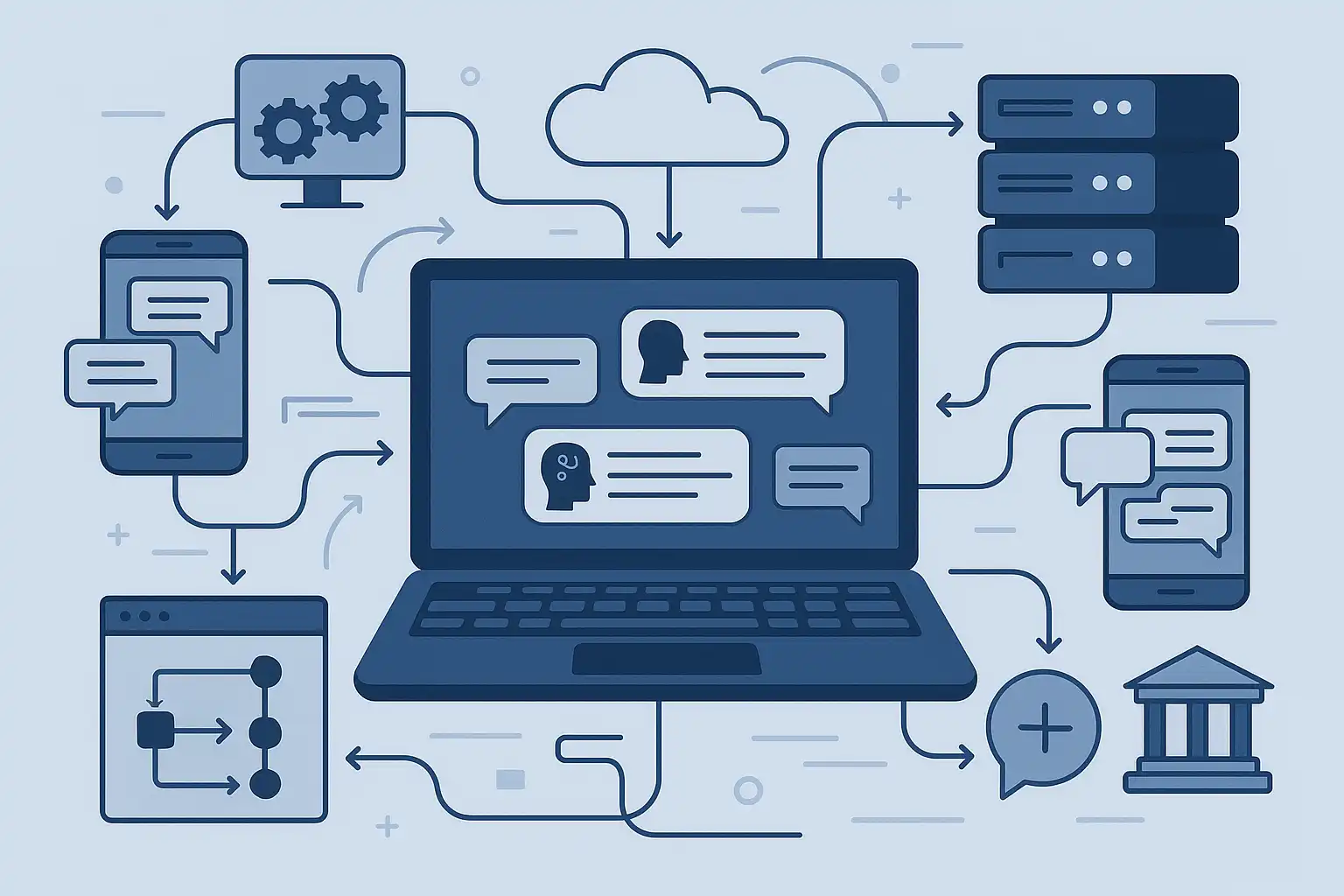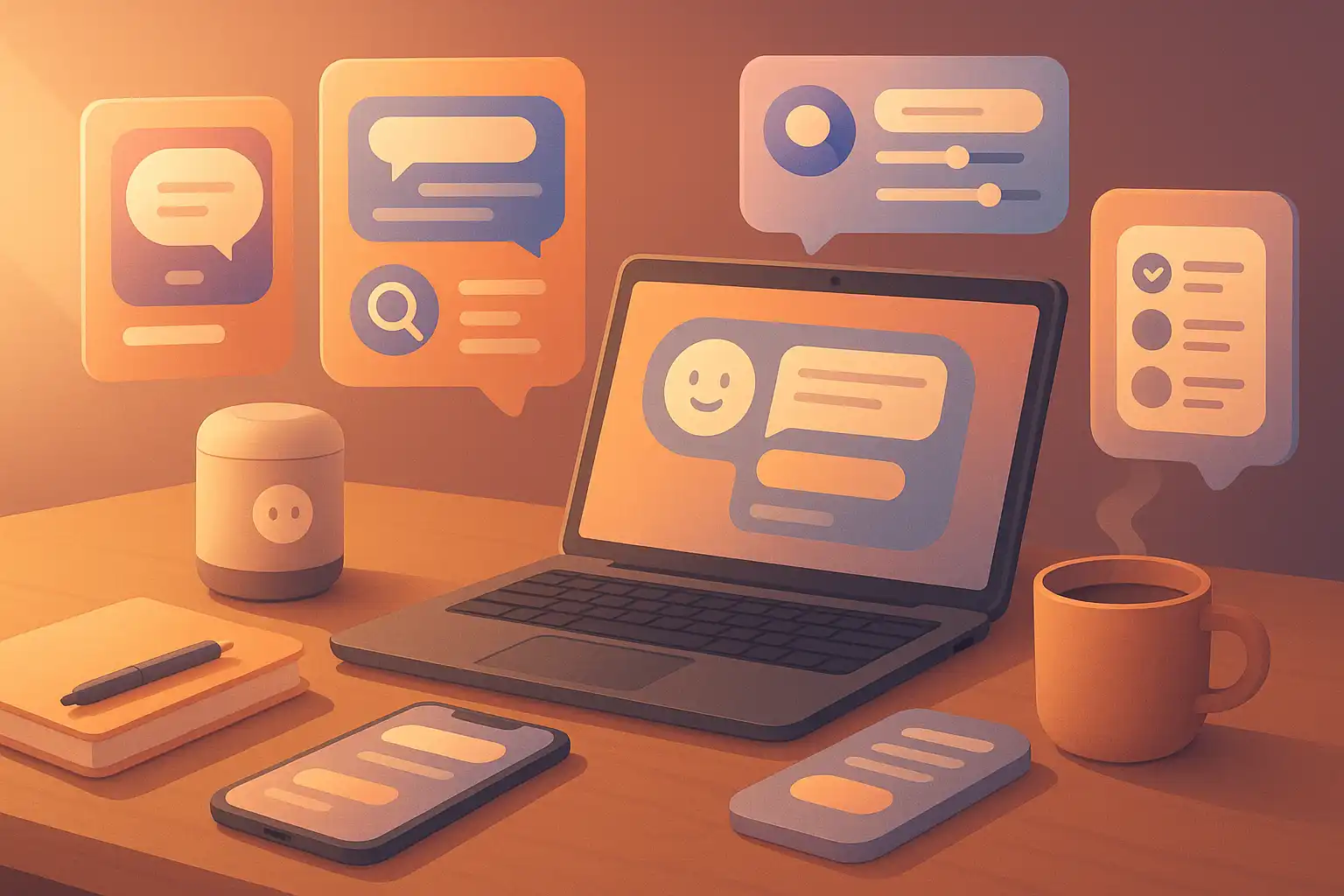
If you are searching for which natural language processing service provides a platform for conversational AI, you are in the right place. The short answer: today’s leading natural language processing (NLP) services that enable conversational AI include Rezolve.ai, Verloop.io, Leena.ai, Haptik.ai, Zendesk, Avaamo.ai, Aisera, ServiceNow, Moveworks, Kore.ai, IBM Watsonx Assistant, Google Dialogflow, Amazon Lex, Rasa, and Conversational Cloud. These platforms use NLP to power intelligent chatbots, virtual assistants, and customer service agents—making conversations with technology easy, natural, and helpful.
Let’s break down how these platforms work, what features matter, how they fit into real business needs, and what questions you should ask when selecting the right NLP-powered conversational AI service.
What is a Natural Language Processing Service for Conversational AI?
A natural language processing service takes human input—typed or spoken—and interprets it so that computers can understand and respond. When applied to conversational AI, these services make it possible for organizations to create chatbots, virtual assistants, or automated agents that hold realistic, context-aware conversations with people. The goal? To deliver instant, accurate help, automate tasks, and make technology feel more human.
Modern platforms do much more than just simple “question-answer” bots. They use advanced NLP, machine learning, and sometimes generative AI to:
- Understand intent (what the user wants)
- Detect sentiment (is the user frustrated, happy, urgent?)
- Manage the conversation flow and context
- Pull answers from knowledge bases, FAQs, and documents
- Automate actions—like resetting passwords or updating tickets
- Escalate to a human when needed
- Learn from past conversations to improve responses
Leading platforms also support multiple channels (web, mobile, messaging apps, even voice), can integrate deeply with business tools like Microsoft Teams, Slack, or Salesforce, and offer analytics to track performance and user satisfaction.
Which Natural Language Processing Service Provides a Platform for Conversational AI?
Here’s a closer look at some of the most popular and powerful NLP services that provide conversational AI platforms:
- Google Dialogflow: Easy to use, flexible, supports text and voice, and integrates with Google Cloud. Popular for customer support and enterprise integrations.
- IBM Watsonx Assistant: Trusted for complex use cases in banking, insurance, and healthcare. Offers strong NLP and explainable AI, with security and compliance features.
- Amazon Lex: Powers Alexa and offers robust voice and text capabilities. Integrates with AWS ecosystem for scalability and reliability.
- Rasa: Open-source and developer-friendly. Great for businesses wanting full control and customization.
- Kore.ai: Enterprise-focused with strong workflow automation and integrations.
- Zendesk Answer Bot: Integrated with Zendesk’s customer service tools for quick deployment.
- Moveworks, ServiceNow, and Aisera: Known for IT service management (ITSM) and employee support automation.
- Haptik.ai, Leena.ai, Avaamo.ai, Verloop.io, Rezolve.ai: Each specializes in areas like HR support, healthcare, education, or banking, often offering ready-made solutions tailored for specific industries.
- Conversational Cloud (LivePerson): Scalable platform for customer engagement, supporting AI-powered bots and human agents working together.
All these services offer advanced NLP, workflow automation, and multi-channel support, making them top choices for organizations needing English-language conversational AI solutions.
How Does Natural Language Processing Improve Conversational AI?
NLP is at the heart of every great conversational AI platform. It unlocks several capabilities that make chatbots and virtual assistants truly useful:
- Natural Understanding: NLP lets bots grasp user intent, context, and even emotions. This leads to smarter, more relevant responses.
- Personalized Experiences: Advanced NLP can tailor answers to the individual’s profile, preferences, and past history.
- Context Management: Remembering what’s already been said, or what step comes next, helps maintain a smooth, logical conversation.
- Automation: By understanding requests, bots can trigger actions—like booking meetings, creating support tickets, or updating records.
- Continuous Learning: Many platforms use AI to learn from new data, improving accuracy over time and adapting to new topics and language patterns.
This level of intelligence means businesses can automate common tasks, resolve issues faster, reduce costs, and improve both customer and employee satisfaction.
What Should You Look for in an English-Language Conversational AI Platform?
Choosing the right NLP-based conversational AI service requires careful consideration. Not all platforms are the same. Here are the most important features to evaluate:
- Advanced NLP: Look for platforms with pre-trained models and industry-specific language understanding.
- Integration: Seamlessly connect with your tools (like Microsoft Teams, Slack, Salesforce, ServiceNow, or HR platforms).
- Automation: Streamline workflows such as IT tasks, HR inquiries, ticketing, and knowledge retrieval.
- Multi-Channel Support: Ensure coverage for chat, email, SMS, voice, and social messaging.
- Security & Compliance: Data protection, explainability, audit logs, and compliance (especially important in fields like healthcare or finance).
- Analytics & Reporting: Real-time insights into user satisfaction, response times, and common issues.
- Ease of Use: Prefer platforms offering low-code or no-code customization so non-experts can build and maintain bots.
- Scalability: The ability to handle many conversations at once, across global teams or departments.
- Industry Specialization: Consider platforms with pre-built templates or AI tuned for your sector (ITSM, HR, banking, healthcare, education, etc.).

Why Do Businesses Use Conversational AI Services?
The adoption of NLP-powered conversational AI services is rapidly growing. Here’s why:
- Faster Customer Support: Provide instant answers 24/7, reduce wait times, and boost satisfaction.
- Employee Self-Service: Empower staff to solve IT or HR problems on their own, freeing up support teams.
- Cost Savings: Automate repetitive queries and tasks, allowing human agents to focus on complex issues.
- Consistency: Ensure everyone receives accurate, up-to-date information—no matter the channel or time.
- Better Insights: Gather data on user needs, common problems, and service gaps for continuous improvement.
- Compliance and Security: Reduce risks by automating sensitive workflows and enforcing policies.
Organizations in IT, HR, healthcare, education, and banking are especially strong adopters, using conversational AI to handle onboarding, support, knowledge management, and compliance tasks at scale.

How Do You Deploy a Conversational AI Platform?
Getting started with a natural language processing service for conversational AI usually involves these steps:
- Define your use cases (customer support, IT help desk, HR support, onboarding, etc.).
- Choose a platform that matches your needs, language, and industry.
- Design conversation flows, intent libraries, and response logic.
- Connect integrations with business systems (like ticketing, CRM, or communication tools).
- Test the bot in real scenarios and improve responses as needed.
- Monitor analytics and fine-tune performance over time.
Most platforms offer guided setup, templates, and tools for both technical and non-technical users, making deployment straightforward even for first-time adopters.
Frequently Asked Questions (FAQ)
What industries benefit most from conversational AI platforms?
Industries with high volumes of user questions—such as IT service management, human resources, healthcare, banking, insurance, and education—gain the most value. These sectors use NLP-powered bots to automate support, handle compliance, onboard employees, and provide self-service solutions.
Can conversational AI platforms support both text and voice interactions?
Yes. Leading platforms like Google Dialogflow, Amazon Lex, and IBM Watsonx Assistant offer support for both text and voice channels. This lets organizations build chatbots for websites, mobile apps, call centers, and even devices like smart speakers.
How do generative AI models enhance conversational platforms?
Generative AI models, such as those underlying advanced chatbots, can create natural, personalized, and context-aware responses—moving beyond scripted answers. This greatly improves user experience and enables more complex conversations, real-time information search, and adaptive support.
Do I need programming skills to use these services?
Not always. Many NLP-based conversational AI platforms provide low-code or no-code interfaces so business users can design and update bots easily. More advanced features or custom integrations may still require some technical expertise, especially for large organizations with complex needs.
